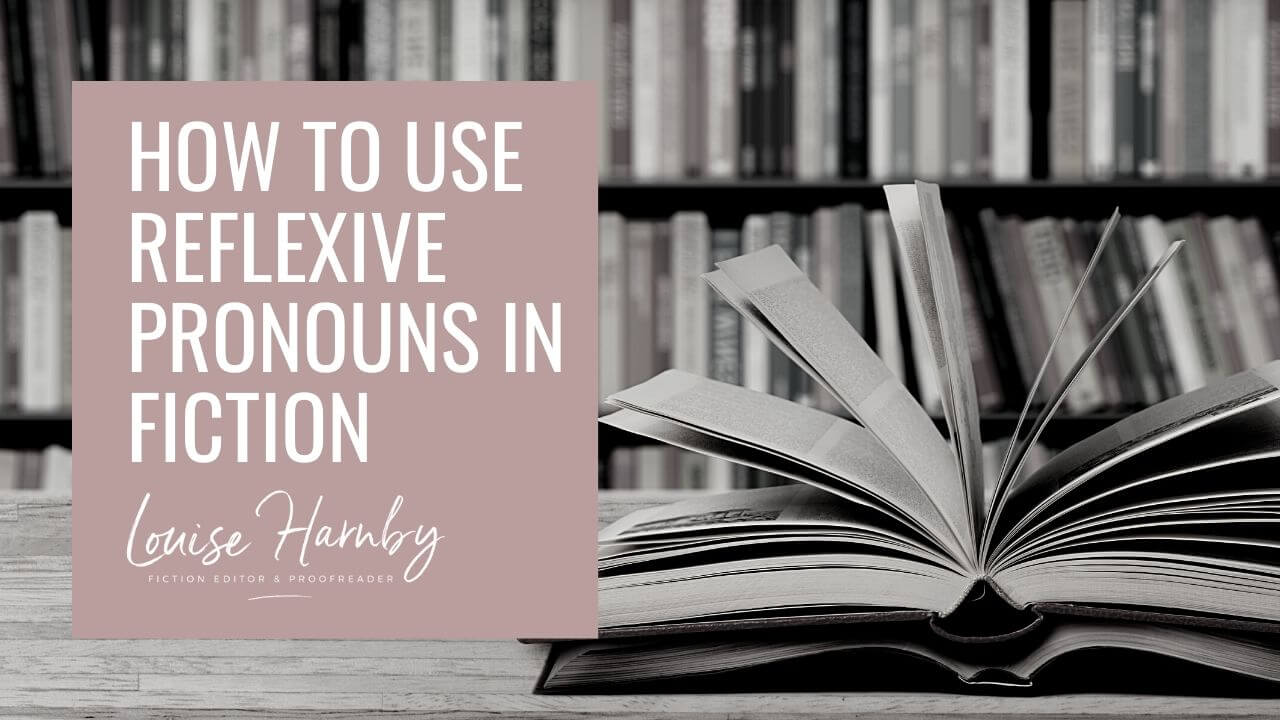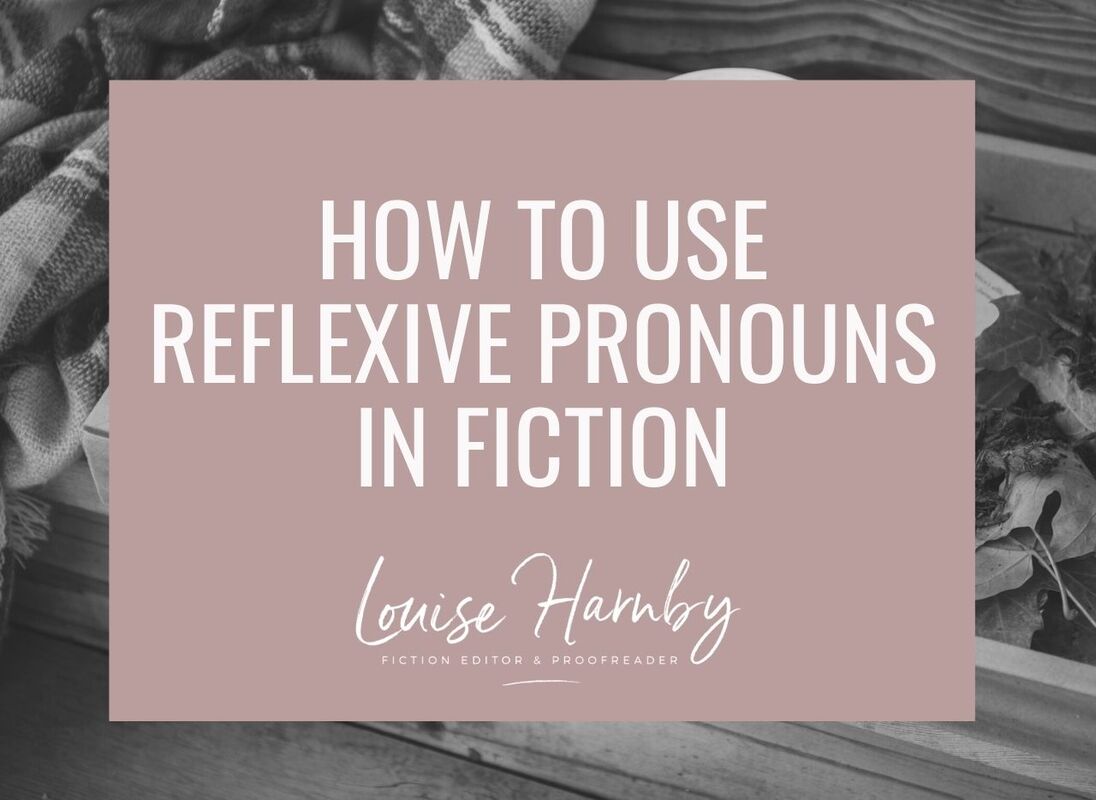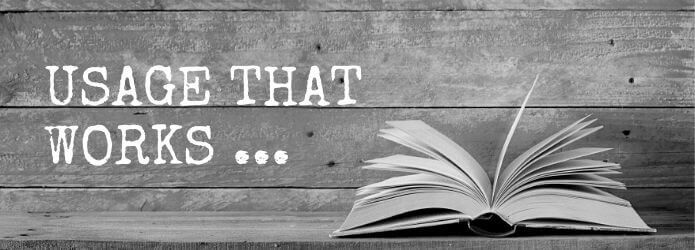|
Himself, herself, myself, themself ... check the usage of pronouns in your fiction. You might just be overworking them, such that you’re stating the obvious, modifying the pace, and reducing tension.
Questionable usage
Reflexive pronouns can act as double tells by stating the obvious, and mar pace and tension. Stating the obvious
When it comes to internal musings, authors can ditch the reflexive pronouns. Thoughts take place inside a person’s head and, by definition, are offered only for the thinker – unless there’s telepathy going on in the novel! Moderating pace and reducing tension
These are high-tension scenes. Max is in a shoot-out; Ali’s escaping danger. Every word stretches out the sentence. And as the sentence length loosens, so does the tension. Look what happens when we remove the pronouns:
The sentences shorten, the pace increases – and so does the tension.
Usage that works
We shouldn’t omit all -self pronouns. There are occasions when a sentence works better with them. Sometimes they’re essential. Clarity In some cases, the pronoun is necessary for clarity. The reader can’t be sure of what the verb’s object is without it. In the examples below, removing the pronouns could leave the reader with questions: Ashamed of what? A promise to whom? Stop what? Consider whom an expert?
Emphasis The pronoun can be used to emphasize the person being discussed. Omission would leave the sentence grammatically intact but change the mood and pacing. In this case, it’s a judgement call on the author’s part.
Sense Some sentences don’t make grammatical sense without a reflexive pronoun. Remove them and the writing leaves more than questions: it’s unreadable.
Reflexive pronouns: mood versus clutter
At the top of this post, I offered examples of how -self pronouns can reduce tension. There will be occasions when an author wants to do exactly that.
There’s a more staccato feel to the second version above that might jar if the author’s seeking a contemplative mood. Still, too much self-ing can make even a stress-free scene overly wordy so it’s always worth thinking about whether a leaner version would be more immersive and get the reader from A to B faster. In the first version of the triplets that follow, the pronouns introduce a chilled-out sense of laissez-faire to the movement. In the second I’ve omitted them. And in the third, I’ve ditched the mundane movement and focused on the essential beat.
It’s always worth an author spending a little time on thinking about how much micromanagement of a scene is necessary. Will the reader care about the chair discovery, or that Maxie had a hot drink while they were reading the letter, or that the protagonist was no longer on the sofa when she called Mel? Perhaps. If that stuff’s central to driving the novel forward, to reflecting mood, to grounding the character in the environment, the pronoun and the stage direction might be necessary. If it’s clutter that can be removed without damaging reader engagement, lean up the scene! Summing up Use reflexive pronouns when they’re necessary for clarity, sense and emphasis. Otherwise, consider leaner prose that focuses on what the reader needs to know to move forward in the story.
Louise Harnby is a line editor, copyeditor and proofreader who specializes in working with crime, mystery, suspense and thriller writers.
She is an Advanced Professional Member of the Chartered Institute of Editing and Proofreading (CIEP), a member of ACES, a Partner Member of The Alliance of Independent Authors (ALLi), and co-hosts The Editing Podcast. Visit her business website at Louise Harnby | Fiction Editor & Proofreader, say hello on Twitter at @LouiseHarnby, connect via Facebook and LinkedIn, and check out her books and courses.
4 Comments
Fiona Trickett
29/7/2020 03:54:53 pm
Thanks Louise - it's a great article.
Reply
Louise Harnby
29/7/2020 04:59:13 pm
Cheers, Fiona!
Reply
Michael
2/8/2020 05:41:54 pm
Thank you for this very important and useful advice. Grammar is my second name, i lost somewhere in the past.;-) Best wishes, Michael
Reply
Louise Harnby
3/8/2020 10:15:06 am
Thanks, Michael. Glad it helped!
Reply
Leave a Reply. |
BLOG ALERTSIf you'd like me to email you when a new blog post is available, sign up for blog alerts!
TESTIMONIALSDare Rogers'Louise uses her expertise to hone a story until it's razor sharp, while still allowing the author’s voice to remain dominant.'Jeff Carson'I wholeheartedly recommend her services ... Just don’t hire her when I need her.'J B Turner'Sincere thanks for a beautiful and elegant piece of work. First class.'Ayshe Gemedzhy'What makes her stand out and shine is her ability to immerse herself in your story.'Salt Publishing'A million thanks – your mark-up is perfect, as always.'CATEGORIES
All
ARCHIVES
July 2024
|
|
|
|



















 RSS Feed
RSS Feed





